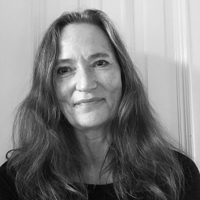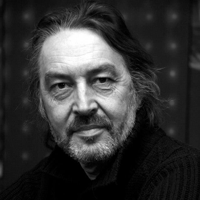Timetable
Log in to star items and build your individual schedule. .
Time zone: Europe/London
The reception was hosted by the president of Iceland, Guðni Th. Jóhannesson who invited delegates to the presidential residence at Bessastaðir. After the reception, delegates headed over to the local pool for the opening party.
Part of Icelandic culture since the earliest settlements are the pools. They are a part of life for Icelanders of all ages, they are a gathering place. A place to go to get the latest gossip or discuss the daily news. A place to meet up with friends. A place to relax and let the daily stress soak away while enjoying time with your peers. For the opening party the pool was closed to the public so we could enjoy a private pool party with barbecue, drinks and entertainment.

Re-assembling everyday temporalities
To see the recording you need to be a logged-in delegate.
Keynote: Tine Damsholt (University of Copenhagen)
Chair: Sigurjón B. Hafsteinsson (University of Iceland)
Abstract: During the Covid-19 pandemic, the usual order of everyday time has been destabilized. Everyday rhythms and the quotidian here-and-now have been transformed, and the near past has surfaced as an Utopian future we wish to return to, while people have tried to re-assemble time in alternative patterns and sequences by means of new routines and mundane activities at home. However, the pandemic state of exception also gave rise to the fundamental question of how we practise time in everyday life? When the pandemic turned the everyday upside down, it revealed how the standardised clock time of modernity is accompanied by a multiplicity of rhythms, repetitions, speeds, rituals, breaks, nostalgic pasts, urgent presents, and anticipated futures. Yet, the pandemic also created a unique opportunity to investigate how time is practised in mundane activities, and to reflect on how we analyse the temporal complexity of everyday lives. As time cannot be observed directly, it must be analysed in terms of how it is anticipated, articulated, experienced, materialised, and practiced within different qualities of time – within temporalities in the plural. Using the pandemic as a prism – as well as other current destabilizations of the taken-for-granted temporality such as the environmental crisis, climate change, and the care for viable futures – the ambition is to contribute to the emerging ethnological understanding of everyday temporalities. And to analytically re-assemble the affective and material temporalities which shape our everyday lives.
Biography: Tine Damsholt is professor wso. of European Ethnology at the University of Copenhagen, Denmark. Her primary fields of research are everyday life and political culture i.e., material-discursive practices in contemporary, 18th and 19th century Denmark. Cultural history, (auto-)ethnography, everyday practices, temporality, subjectivity, materiality, (national and patriotic) discourses, emotions, landscapes, gender, bodily and affective movement and choreographies are recurrent themes in her research and publications. Currently she is investigating the ongoing disruptions of everyday life temporalities, and in particular the question of how the hope and care for more viable futures are practiced within quotidian practices in the home.
Continuing where we left off at the last NEFC in Uppsala we invite all interested to discuss both existing and future Nordic collaboration, networks, journals and conferences. The brand-new Nordic Portal for Ethnology and Folklore will be presented as an example of such collaboration.
Convenors: Blanka Henriksson and Lars-Eric Jönsson
Room H-205
This meeting will be hybrid. To enter the zoom remember to login and the link will be here.
We plan to propose a new working group to SIEF on Feminist Approaches to Ethnology and Folklore. As there are no such groups currently, we feel the need to begin to build and develop a network of scholars who work on issues pertaining to gender, feminist approaches, or otherwise engage in theoretical approaches that fall under the general category of Women's/Gender studies in their work in ethnology and folklore. In this meeting we would like to meet with colleagues who are interested in collaborating and engaging in dialog on these issues to discuss the focus and aims of such a group.
Convenors: JoAnn Conrad and Dagrún Ósk Jónsdóttir
Room H-206
This meeting will be hybrid. To enter the zoom remember to login and the link will be here.
170 delegates alternated between the beautiful forestation site, Úlfarsfell and the fascinating outdoor museum, Árbær. In Úlfarsfell, right outside of Reykjavík delegates had the chance to offset their carbon footprint by planting 2000 trees with guidance from the Icelandic Forestry Association. In Árbær Open Air Museum delegates got a sense of the architecture and lifestyles of Reykjavík‘s past.
LOCATION: In the canteen where we have lunch, or just outside it, in the small square by the canteen!
Are your boots made for walking? Were you born to run? Do you want to dance with somebody?
There will be proper karaoke during lunch on Thursday to get into the gear for RE:22 closing party in the evening. You can sign up early to try and secure a spot in the karaoke session: https://forms.gle/PtEnFgwD3qbrWYv8A
Hits&Tits guidelines for party karaoke
- It’s not necessary to be a good singer to participate in the karaoke. It’s more important to have fun.
- Sing your favorite party song. Songs are not lined up in the order that they come in but lined up by how much fun they are.
- To put your name in the hat you need to write your name, the name of the song you want to sing and the name of the original performer. There is no songbook as we are using YouTube so you could say that the sky is the limit.
- We have a limit to two singers per song. This is a solo or duo show - we want you to shine like the superstar you are.
- We will do our best to fit as many performers as possible but we might not manage to let everyone sing.

The Art of the Ripples: The Development of Folk Tale Illustration in Northern Europe (1816-1870)
To enter the zoom remember to login and the link will be here.
Location: Skriða Hall (ground floor, Stakkahlíð)
Keynote: Terry Gunnell (University of Iceland)
Chair: Kristinn Schram (University of Iceland)
Abstract: This year will see the publication of Grimm Ripples: The Immediate Legacy of the Grimms’ Deutsche Sagen in Northern Europe, a collaborative work by 18 international scholars which focuses on the cultural tsunami that took place in Northern Europe largely as a result of the appearance of the Grimms’ Deutsche Sagen in 1816-1818. Among other things, this work pays close attention to the influence that the various folk tale collections which appeared in the wake of Deutsche Sagen had on each other, something that applies not least to the increasing use of illustrations in these books. Arguably the use of art to illustrate folktales in the north began with George Cruikshank (1792–1878), illustrator of Taylor’s English translation of the Grimms’ fairy tales in 1823. In this lecture, I would like to trace the way Cruickshank´s example was followed up by collectors and publishers in other countries such as Ireland, Norway, Sweden, Germany and Iceland as the “ripples” travelled northwards. Attention will be paid not only to the frontispieces of these works but also the illustrations contained within them by artists such as William Henry Brooke, Daniel Maclise, Hans Gude, Peter Nicolai Arbo, Theodore Kittelsen, Adolph Tidemand, Erik Werenskiold, Marcus Grønvold, Gustav Doré, Egron Lundgren, Wilhelm von Kaulbach and J. B. Zwecker, and in particular interaction between collectors and artists shown in the letters sent between them. If nothing else, this overview will underline the degree to which the collection of folklore in the north was closely intertwined with the creation of national culture, national art, and not least national image.
Biography: Terry Gunnell is Professor of Folkloristics at the University of Iceland and Chair of the ISFNR membership committee. He is also author of The Origins of Drama in Scandinavia (1995), editor of Masks and Mumming in the Nordic Area (2007), Legends and Landscape (2008), and the forthcoming Grimm Ripples: The Immediate Legacy of the Grimms’ Deutsche Sagen in Northern Europe, and (with Karl Aspelund) co-editor of Málarinn og menningarsköpun: Sigurður Guðmundsson og Kvöldfélagið which was nominated for the Icelandic Literature Prize in 2017. He has also written numerous articles on Nordic folk belief and legend, folk drama, performance and Old Nordic religion.
The final dinner and dance party was hosted at the Reykjavík Art Museum Hafnarhús.
The museum has a new exhibition there on the works of Erró (one of the few Icelandic artists who has gained a foothold in the international art scene), the exhibition was open for delegates to walk around during the party. There was amazing food, drinks and entertainment. The great Icelandic DJ - Margrét Erla Maack, ensured that those who wanted to were able to dance the night away!
This excursion includes the following stops: Suðurströnd and LAVA center (Seljalandsfoss – Skógafoss – Reynisfjara – Vík – Sólheimajökull). Link to the tour description. Pick up from Hallgrímskirkja at 08:00.
Registration for excursions is now closed.

This excursion includes the following stops: Gullni Hringur (Þingvellir – Gullfoss – Geysir). Link to the tour description. Pick up from Hallgrímskirkja at 09:00.
Registration for excursions is now closed.
